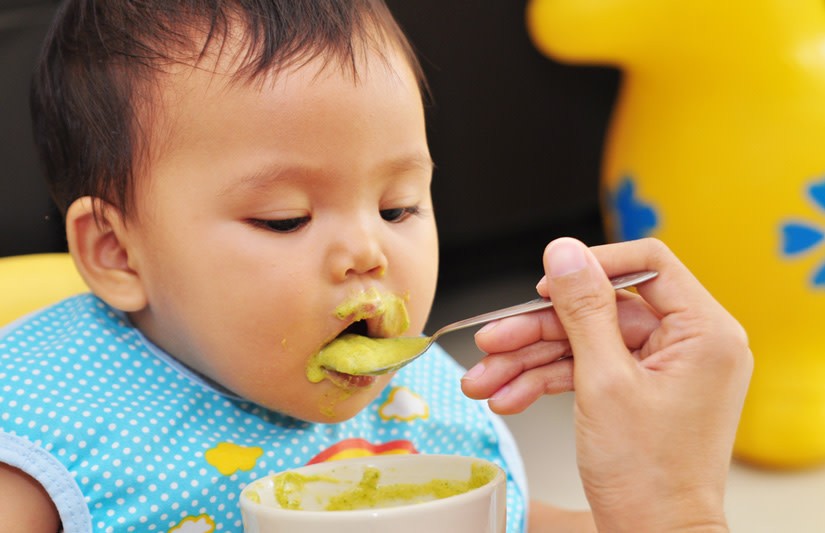Baby Food To Maximize Your Child’s Brain Development
We all want our children to be as smart as they can be, right? But what about making sure their brains are developing optimally? According to recent studies, one of the best ways to do this is by giving your child healthy baby food – specifically, foods that contain omega-3 fatty acids and other nutrients that promote brain health.
In this article, we’ll outline some of the best sources of baby food that contain these nutrients and explain why they’re so important for your child’s cognitive development. So read on and get started on a lifelong habit of providing your child with the best possible start in life!
What is Baby Food and What Does it Do?
One of the most important things you can do for your baby’s brain development is to provide high-quality, nutritious baby food. Not only does this help to ensure that your child’s body is getting the nutrients it needs, but it also helps to shape their cognitive and motor skills. The best way to ensure that you’re feeding your baby the best possible food is by reading labels and consulting with a pediatrician or other healthcare professional. Here are some of the key benefits of providing high-quality baby food:
-Improves brain function and development: Baby food provides essential nutrients needed for optimal brain function and growth. It helps to build up the neural tube, which then leads to better memory and learning abilities. In fact, one study found that babies who ate well-rounded diets had better cognitive development than those who didn’t.
-Increases infant weight and length: Babies who eat well-rounded diets grow faster and are more likely to reach their full height and weight potential than babies who don’t eat well-rounded meals. Feeding your baby good quality baby food will help them reach their ideal weight and height, which is important for their overall health and development.
Types of Baby Foods
Every parent wants their child to grow up healthy, smart, and strong. And for a baby’s brain to develop optimally, it needs the right type and amount of food. Here are four types of baby foods that will help your child’s brain grow:
1. Breast milk is the perfect food for a baby’s brain growth because it contains antibodies, vitamins, and minerals that can help support cognitive development.
2. Formula is another great source of nutrients for a baby’s developing brain. It provides all the essential amino acids, important vitamins, and minerals necessary for cognitive development, including folate and iron.
3. Foods high in omega- 3 fatty acids are important for a baby’s brain growth. These fatty acids help to support cognitive function by improving neural connections and preventing inflammation in the brain. Some good sources of omega-3s include salmon, walnuts, flaxseeds, and chia seeds.
4. Baby food made with whole grains is also good for a baby’s brain development. These foods contain fiber that helps to regulate digestion and keep the intestinal walls healthy, which can improve overall mental health and cognition. Good whole grain options include oatmeal, brown rice, and quinoa
Benefits of Eating Baby Food
Studies have shown that babies who eat a variety of different foods (including baby food) develop better brain function than those who don’t. Here are some of the benefits of eating baby food:
Babies learn more quickly and are more cooperative when they are eating a varied diet. This is because their brains are getting the nutrients they need to function best.
Baby food is also high in antioxidants, which can protect your child’s brain from damage caused by the environment and toxins.
There is evidence that babies who eat a variety of healthy foods have lower rates of obesity and other chronic diseases in later life.
How Much Baby Food Should You Feed Your Child?
There is no one definitive answer to this question as babies’ nutritional needs vary depending on their age and activity level. However, the American Academy of Pediatrics (AAP) recommends that babies receive about 12-18 ounces (340-480 ml) of breast milk or formula per day, with about 6-8 ounces (170-225 ml) being the ideal amount for toddlers. When breastfeeding, continue to provide your baby’s normal daily caloric intake even if they are not eating solid foods. As your baby grows and starts to eat solid foods, gradually increase their intake of grain products, legumes, fruits, and vegetables.
For more information on how much baby food to feed your child, consult with a health care professional or visit www.aap.org/nutrition/.
What if Your Child Doesn’t Like Baby Food?
If your child does not like baby food, there are a few things you can do to help maximize their brain development. First, try different flavors and textures to see what your child likes the most. Next, try mixing different types of food together to see what your child enjoys the most. Finally, experiment with different feeding schedules so that your child is eating regularly and getting the nutrients they need.
Conclusion
If you are looking to give your child the best start in life, you should consider feeding them baby food that is high in nutrients and low in sugar. Baby food is specially formulated for infants and children and includes foods like fruits, vegetables, grains, dairy products, and meat. Not only will this diet help your child’s body develop properly at an early age, but it will also help to optimize their brain development. If you’re interested in trying out baby food as a way to provide your child with the best possible start in life, be sure to check out our selection of high-quality brands!

